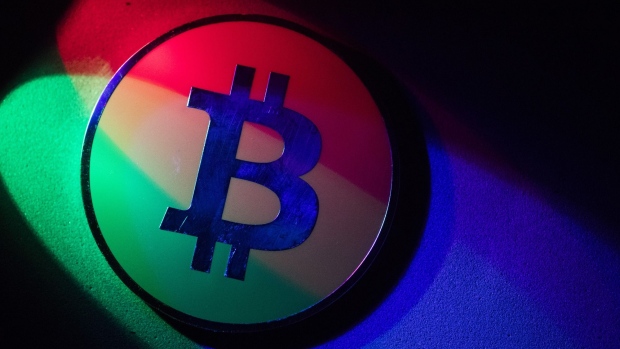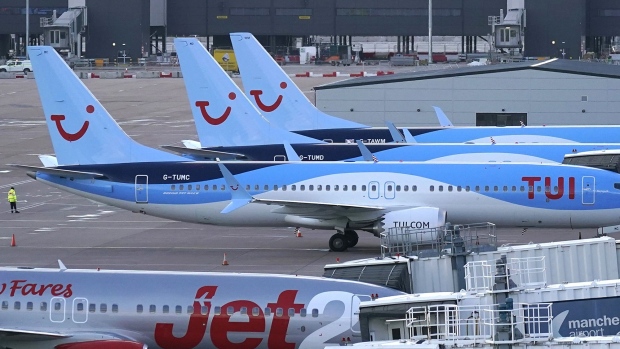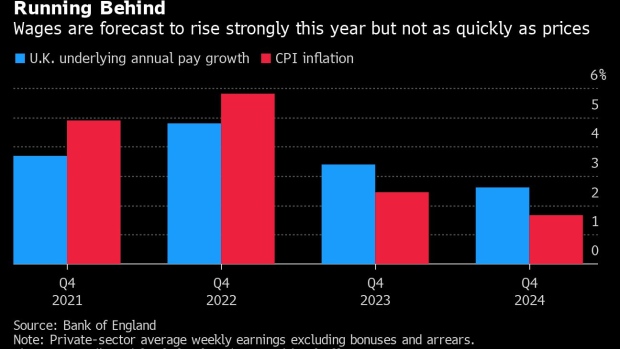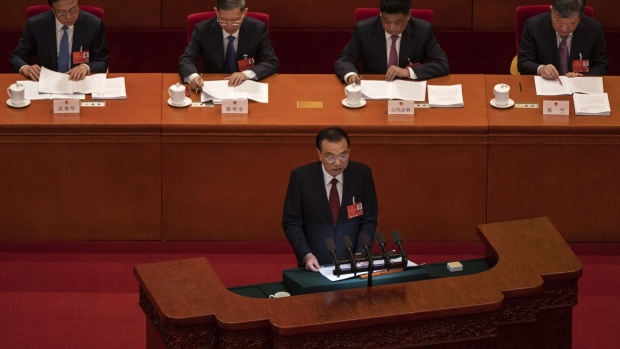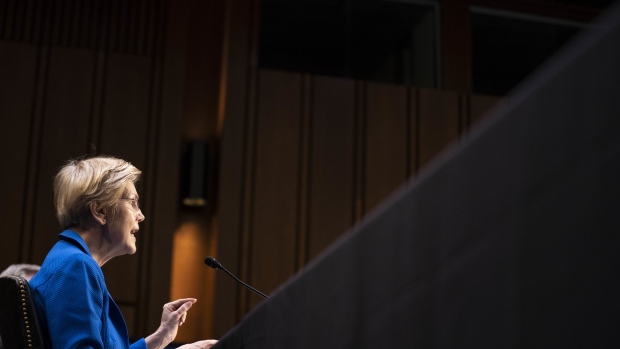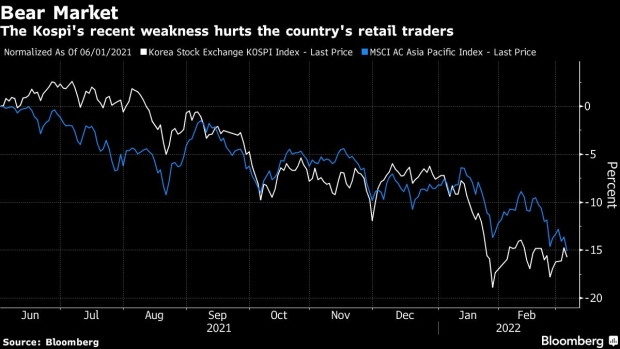Brace for More Russian Plot Twists, Geopolitical Strategist Says
, Bloomberg
(Bloomberg) -- When assessing what a political leader is going to do, Marko Papic doesn’t give much weight to the person’s desires. Rather, he looks at what he calls “material constraints.” In other words, what factors will limit the leader’s ability to get what he or she wants.
To Papic, chief strategist at hedge-fund seeding firm Clocktower Group, Russia’s Vladimir Putin is ignoring material constraints in his assault on Ukraine. And ultimately, he says, that could lead to the leader’s downfall.
Papic, the author of “Geopolitical Alpha: An Investment Framework for Predicting the Future,” joined the “What Goes Up” podcast to discuss these topics and more.
As far as the war’s effects on the economy and markets, Papic says the U.S. is in a better position to weather higher energy costs than Europe. While uncertain about how central banks, bonds and stocks will react, he adds: “I just know that I like commodities in that world.”
Below are condensed and lightly edited highlights of the conversation. Click here to listen to the full show and subscribe on Apple Podcasts or wherever you listen.
Q: You -- and many others -- had assigned a low probability of a full-blown invasion. What did everyone get wrong?
A: My framework is based on material constraints to policy makers, and I call it a framework on purpose. It’s not a theory, it’s not a method -- it’s a framework that allows investors to have some sort of a set of probabilities. And in this particular case, what’s interesting is that the set of constraints that I elucidated in my research is absolutely acting itself out. It’s manifesting in reality as we speak. And it’s manifesting itself in a couple of ways. Ukrainians are fighting really, really hard. The second is that the Russian military has not had any experience fighting real wars. And third is that Ukraine a very logistically difficult place to invade.
So those constraints are manifesting themselves. What I’m saying is it’s still very, very valuable to be focused on the material reality because if a policy maker you’re trying to predict ignores the constraints you laid out, then you were right in how you laid it out. Then you can chart a path forward once they have surprised you with their decision-making.
Now, why did we all get it wrong? What we misunderstood is two things: one, Putin’s ROI on geopolitical events has been very high. He’s been very, very cautious empirically. I can prove this with his previous actions. And the second is that it’s not clear that we did get it wrong. And what I mean by that is that there is still an off-ramp where this becomes a Georgia 2008 scenario, where in that initial stage of the attack it looks like a wide occupation in an attack against the entire country. But it’s actually going to end up being much more limited, where he withdraws from a lot of the areas and focuses on what he wants. And so that’s something that I would just add -- let’s see how this plays out, especially as pain continues to be exerted on the Russian military, Russian economy and politics.
Q: Can you lay out some theories for why the invasion happened in the first place?
A: To me, the fundamental issue here is that Russian policy over hundreds of years has been colored by deep paranoia of vulnerability. And it’s really born out of history, which is bloody -- many, many, many people and leaders have tried to conquer Russia and knock it out. And the second is a really vulnerable geographical position. This is imprinted on Russian psyche -- especially if you come to rule Russia, you come to learn the lessons of its history, which is that leaders who took geographical insecurity of Russia lightly are not remembered with glory. And so those that take it seriously, they try to secure Russia.
And the biggest problem right now for Russia is that when you look at its Western borders, the fact of the matter is that it’s vulnerable, it’s exposed. And so Putin has tried to explain this to the West for a very long time. I do think the West didn’t really listen to it seriously. And what you saw over the last 12 months, especially, is a ramping up in rhetoric -- not so much from Paris and Berlin, but specifically from Washington D.C., on Ukrainian membership in NATO. Now listen, I’m not here to tell you that this is America’s fault -- Putin is crossing an international border. He didn’t have to do that. But the rhetoric out of the U.S. has been much more stringent. The U.S. sent lethal weapons to Ukraine. And there were things the U.S. has said that were really interesting -- for example, territorial disputes between Ukraine and Russia do not preclude Ukraine’s membership to NATO. That’s something the White House said recently. And the truth is of course it does.
The point is that the U.S. was just kind of writing checks it doesn’t have any intention of cashing. And I think Putin called America’s bluff. And what I think he’s doing, though, is I don’t think that the Kremlin is trying to annex Ukraine. We can talk about how ludicrous that would be. And this is where my point of material constraints really hits in. I think what he’s trying to signal to Kyiv in stark terms is how alone they really are and how no one’s coming to save them. And that’s something that President Zelenskiy said at the very onset of the war...I’m paraphrasing, but he basically said, look, no one’s coming to save us. There is no NATO membership on offer. We do need to offer Russian neutrality. I think that’s an off-ramp that Putin could take to actually declare victory, raise the mission-accomplished banner and move on.
Q: Could the sanctions so far be enough to influence Putin’s behavior or even topple him?
A: I give Putin 12 months and I’m taking the under. When policy makers make extraordinarily bad decisions that ignore their material constraints, they get punished. I’ve been following this kind of stuff since I was 16 years old. I’m just a guy sitting on Santa Monica beach, doing my research for investors, and I called the material constraints to Russia perfectly. So how the heck did Vladimir Putin not do the same?
That is an egregious, egregious mistake by a policy maker. And I mean that objectively -- I’m not even mentioning the civilian deaths and the pariah status for Russia. Leave that aside. The 40-mile convoy -- that’s not a sign of Russian power. That’s a sign of Russian weakness. They can’t move that thing. If you are a country with a modicum of look-down capability for your air force, if you have fighter jets that can shoot down, which is rare, but if you have them, right now the message you’re getting from this conflict is you can defeat 250,000 Russians in a war. Belgium can defeat Russia in a war right now. And so that’s why I’m so adamant that this mistake will be punished -- not by a coup, not by something, but it will be punished by the material reality.
Don’t confuse madness, temporary madness with permanent lunacy. And so I do think that the constraints are going to act over the next couple of weeks, and at some point I think there is an off-ramp. Now, am I sanguine on the markets because of that? No. I do think that this conflict could be different than others. And I do think there’s still considerable downside risk.
Q: Is Russia uninvestable for the rest of the world for the rest of our lifetimes?
A: If you have some sort of a change in tact in your relationship with the West, of course I do think that there will be a potential to invest in Russia. The problem is that from here to there, we could have appropriation. So should you buy Russian equities now given this kind of hope that there is some sort of a change in leadership or Putin’s retirement? I don’t think so. This is a very volatile situation.
I would actually propose a different view. I actually think that what’s happening in Ukraine is extremely, obviously, terrifying, but also heartening. We are watching something we haven’t seen in a long time -- we’re watching the birth of a new national identity. Ukraine’s biggest challenge has been that post the Soviet Union collapse, its leaders have been corrupt. They’ve been incompetent and not just pro-Russian ones. The point is that what we’re seeing now in Ukraine, though, is a birth of a truly self-aware nation. And I think that that might be actually a very interesting investment opportunity over the next decade, provided that they fight off this attack and have some independence going forward. It’s a large country, it is in Europe, and a lot of potential exists in that country.
Q: How does the war impact growth prospects in the U.S. and Europe?
A: That’s the number one question with the folks that I talk to on a daily basis, whether they’re institutional investors like large pension funds or hedge funds. My view is that I worry about the Yom Kippur scenario -- that’s a nightmare scenario. Think about why this is so difficult. If the Fed just says, look, we’re going to deal with inflation, we get a recession. OK. If the Fed says eh, it’s caused by Putin, so we’re going to step back. OK, what does that do to asset prices? Well, I’m not sure that’s positive for asset prices either. Inflation is basically un-anchored and central banks lose credibility.
The European Central Bank really has only one mandate, and they’re now backing off from that mandate. What does that do to the bond market? What does that do to equities? I don’t know. I just know that I like commodities in that world. But in terms of the actual impact, there are differentiated impacts. Obviously Europe is going to be far more affected by what’s going on in Ukraine than the U.S. The U.S. has a couple of things going for it. Net worth in the U.S. is so high right now because of the stimulus checks. If you plot oil prices relative to net worth, they’re like the lowest they’ve ever been. So Americans do have the ability to incur higher costs.
And then on top of that, you have something else that’s interesting. We just went through two years of working from home. Our ways of life and work have altered. And it’s not clear to me that an increase in oil prices would necessarily impact the American economy as it has in the past. So the whole idea that a 10% increase in oil prices impacts the GDP at a certain percent -- we should throw all of that out the window. We don’t know. In the U.S., the impact will be much, much lower, which also explains the geopolitical position of the U.S. The impact to Europe is much higher. The U.S. can be much more Machiavellian, much meaner to Russia and supportive of Ukraine because the macroeconomic implications are lower.
This was just the highlights. Click here to listen to the entire podcast.
©2022 Bloomberg L.P.
